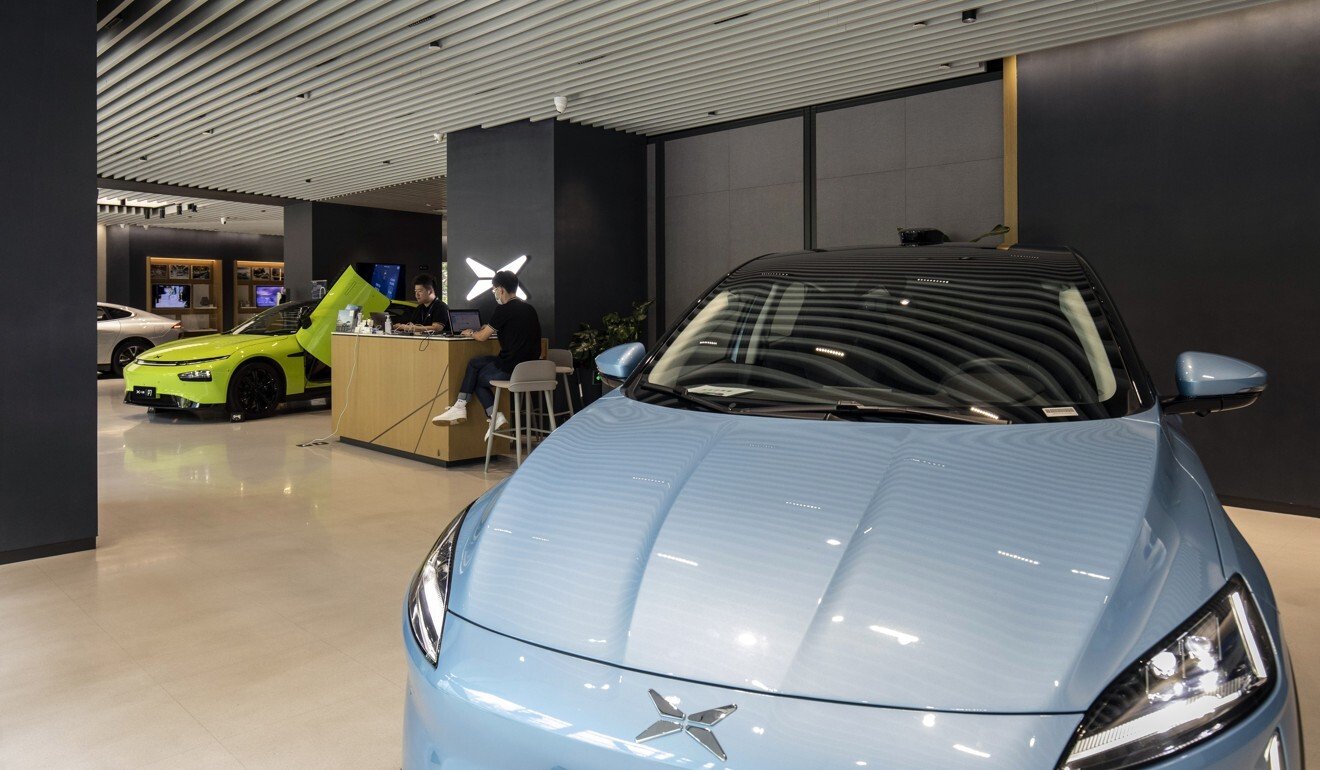
Tesla drops down the rankings to ‘below average quality’ in mainland auto survey as Chinese EV makers move up
- The study measures new-vehicle quality by examining problems experienced by car buyers in China within the first two to six months of ownership
- Tesla’s Model 3 ranked third in the midsize battery electric vehicle (BEV) segment, falling behind BYD Co’s Han BEV and Xpeng’s P7
Tesla has dropped to ‘below average quality’ while three leading Chinese electric vehicle start-ups are now making ‘top-quality cars’ in their respective segments, according to a new survey, ratcheting up pressure on the global leader in the world’s largest automotive market.
Tesla’s Model 3 ranked third in the midsize battery electric vehicle (BEV) segment, falling behind BYD Co’s Han BEV and Xpeng’s P7, according to the JD Power 2021 China New Energy Vehicle Initial Quality Study released on Thursday. This puts Elon Musk’s firm in the ‘below average quality’ segment, according to the survey.
The survey inspected 50 models from 28 different car brands in 53 cities across the mainland. It was based on responses from 3,976 vehicle owners who bought their cars between September 2020 and March 2021.
This compares with an earlier survey, the auto consulting firm’s 2020 China New Energy Vehicle Experience Index Study published last year, which ranked Tesla’s Shanghai-built sedan in second place behind Nio’s ES6 in the same segment. This survey has now been renamed as the Initial Quality Study, JD Power said.

NIO’s ES6 now ranks highest in China’s luxury BEV segment, the Xpeng’s G3 is the best compact BEV while Li Auto’s Li One secured the top spot in the plug-in hybrid electric vehicle (PHEV), according to the 2021 Initial Quality Study.
“Competition has intensified as more and more automotive brands join the new-energy vehicle (NEV) race,” said Jeff Cai, general manager of auto product practice at JD Power China. “Automotive brands have put more resources into fields such as intelligent and battery technologies in which they have already gained differentiation and first-mover advantages.”
The study measures new-vehicle quality by examining problems experienced by car buyers in China within the first two to six months of ownership. The three Chinese EV start-ups, all of which are listed in New York, are now seen as legitimate rivals to Tesla in the mainland market although their sales still lag far behind the US company, which dominates the premium EV segment.
“The survey result is an encouraging sign that Chinese EV companies have the substance and potential to challenge Tesla,” said Tian Maowei, a sales manager at Yiyou Auto Service in Shanghai. “But they need to work harder to further improve their models and technologies. A victory over Tesla will not be achieved overnight.”
In the first half this year, Tesla sold more than 130,000 Model 3s and Model Ys in China, close to its full-year sales figure of 137,459 cars last year. In that period, Nio delivered 41,965 vehicles, nearly tripling sales from a year ago. Xpeng sold 30,738, up by 458 per cent year on year. Li Auto’s deliveries rose by 212 per cent to 30,151.
Tesla appears to have shaken off gloomy forecasts over the past two months amid a spate of negative headlines in China about the quality and safety of its Shanghai-made cars. Last month, the carmaker recalled more than 285,000 vehicles because of safety concerns about the cruise control function.
In March, the Chinese military banned Tesla from its facilities because of concerns about cameras installed in the cars. A month later, under pressure from Chinese regulators, the carmaker released the data log of a Model 3 that crashed in February in the country’s central Henan province, to the car owner.
“Car buyers still recognise it as the top EV maker worldwide,” said Dong Yanjun, a white-collar clerk at a state-owned financial service firm in Shanghai. “It is still a no-brainer when you think about buying a smart EV with a budget of more than 200,000 yuan (US$30,924). I would still love to own a Tesla.”


